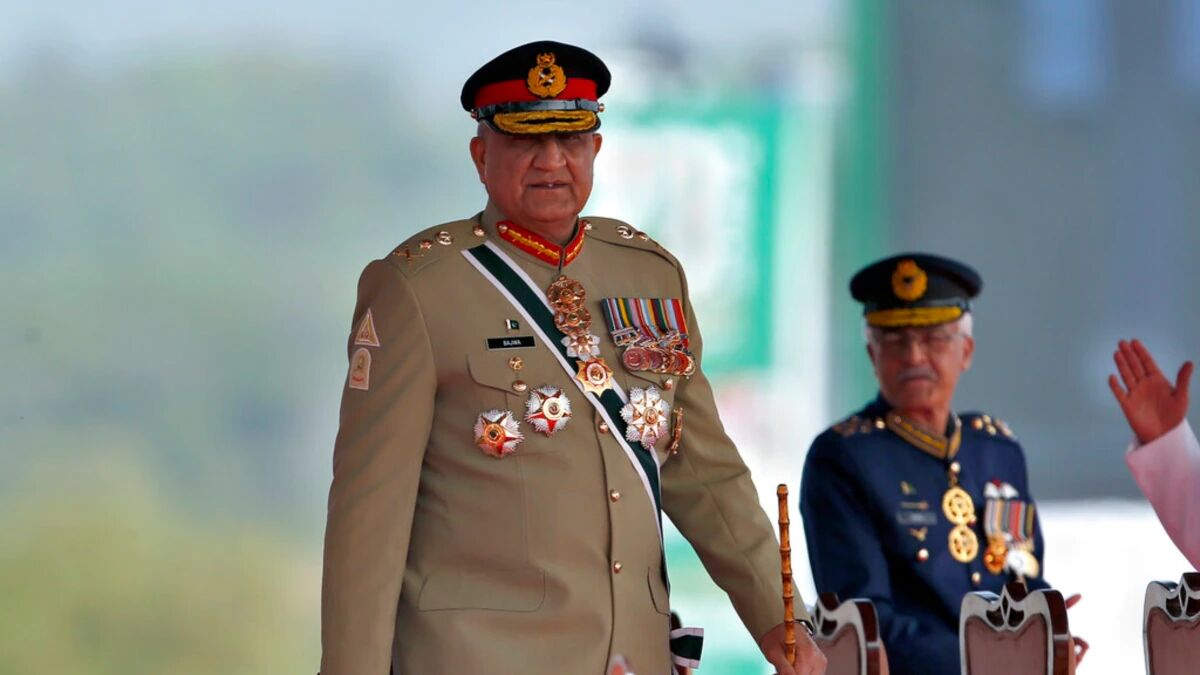Plunged into misery?
Pakistan’s desperate bid for IMF bailout package is substantive evidence that the country is stuck in one of its worst economic crises in recent times

In a forthright and surprising move, Pakistan Chief of Army Staff (COAS) General Qamar Javed Bajwa appealed to the United States to help Islamabad secure an early disbursal of USD 1.2 billion fund under an International Monetary Fund (IMF) loan programme as Pakistan faces the risk of debt default due to dwindling foreign reserves. It is surprising more because, ordinarily, the Army Chief of a country under a civilian political dispensation does not meddle into the economic or financial matters. In any case, Bajwa's term of office comes to an end this November and it is a well-known fact that he fell out with previous Prime Minister, Imran Khan, on the issue of appointment of the ISI Chief. Is General Bajwa surfacing on the political horizon to be considered for an extension of term? This could be possible as the Shehbaz Sharif regime seems to be enjoying the trust and confidence of General Bajwa.
Furthermore, the army chief reached out to the US Deputy Secretary of State Wendy Sherman on a phone call last week, sources from both the US and Pakistan confirmed (as revealed by Wajahat S Khan, a news correspondent) on the condition of anonymity. It is further revealed that Gen Bajwa requested the White House and Treasury Department to urge the lender to expedite the bailout process and immediately release the USD 1.2 billion sum that Pakistan expects to receive under a resumed loan programme. Meanwhile, ousted premier Imran Khan criticised the move saying that it was not the army chief's job to approach the United States over the deal. "If these reports are correct that (Chief of Army Staff) General Bajwa is seeking America's help in getting IMF [loan] it means that the country is getting weaker," he had said in an interview with a local TV channel on July 29.
Also, Pakistan and the IMF reached a staff-level agreement over the release of the funds to support the country's fragile economy. The staff-level agreement will pave way for the loan disbursal, which is expected in August.
In the meantime, other than redressal of economic problems, General Qamar Javed Bajwa, on July 24, took a comprehensive review of the security situation focusing on the border and internal security of the country during the 249th Corps Commanders' Conference held in Rawalpindi.
Also, General Bajwa paid rich tributes to the officers and men. He appreciated the efforts of formations in relief operations on floods. The forum reaffirmed the resolve of the armed forces to extend complete support to civil administration in rescue activities.
From these, it appears that General Bajwa remains in focus in Pakistan-related happenings and also wants to keep the forces' and ISI's morale high to be seen as a confidante of the present regime.
Simultaneously, the civilian leadership has also separately contacted the US section of the diplomatic fraternity in Islamabad, seeking help to unlock another USD 1.4-billion fund from the World Bank and the Asian Infrastructure Investment Bank (AIIB). The developments have probably reflected the government's efforts to prevent the economy from sliding into a profound economic and financial crisis as the time is running out to find a way out of the situation that has badly shaken the markets.
In a related development, Awami Muslim League (AML) chief and Pakistan Tehreek-e-Insaf (PTI) ally Sheikh Rashid Ahmed strongly criticised (July 31) the federal government for its failure in dealing with the economic woes of the country. In a tweet, the former interior minister said that even China, Dubai, Qatar and Saudi Arabia did not come to (country's) aid, nor did the IMF's bailout package arrive. He also maintained that the decision to table the no-confidence motion that led to former Prime Minister and PTI chief Imran Khan's ouster was taken in London. He claimed that economically, the country is stuck. The tough conditions set by the IMF for the revival of the USD 6 billion bailout package amid the withdrawal of various government subsidies have left the country at a breaking point. As the rupee continued its record-breaking nosedive, the National Assembly was told on July 27 that the government was hopeful that the pressure on the rupee would ease ahead of inflows from the IMF, reckoning that the dollar would fall likely to a level of Rs 190 to 210. Sheikh Rashid has, however, raised serious questions about the elusive package. He claimed that China has serious reservations over the conditions set for (acquisition of) the US aid. Raising further alarm, the former minister said that only 45 days' worth of foreign reserves remained in the country. Pointing to a possible point of disagreement between the coalition government, Rashid also said that Maulana Fazlur Rehman and the Tehreek-e-Taliban Pakistan (TTP) are on the same page on the FATA merger issue.
One thing is certain, the present economic condition of Pakistan is perhaps the worst in recent times and does not appear to show any amelioration. This means more economic turbulence looms large in the near future over Pakistan.
The writer is a retired IPS officer, a security analyst and a former National Security Advisor to the PM of Mauritius. Views expressed are personal



